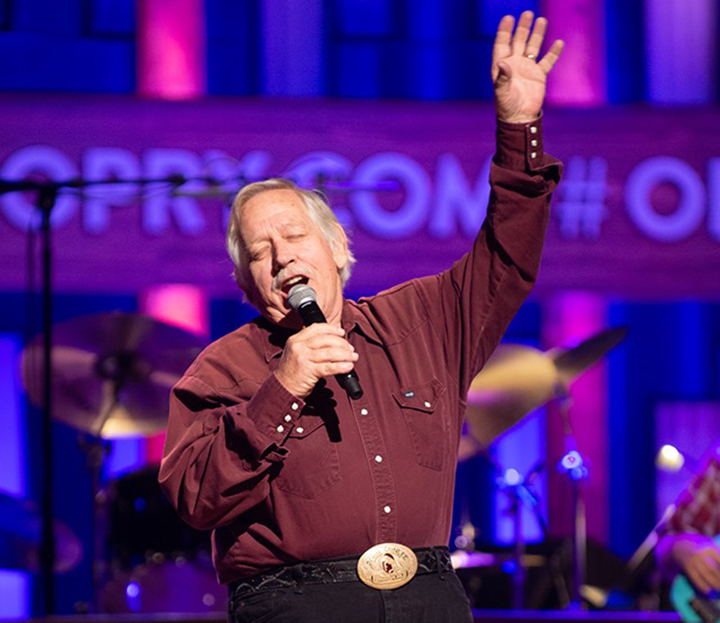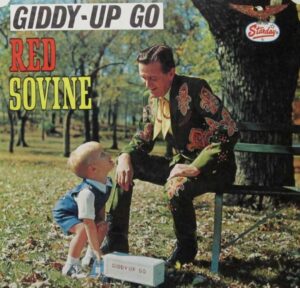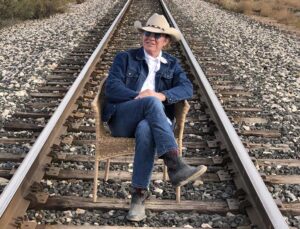Years ago, I recall a local country radio poll asking listeners to pick from one of two newly released songs. Which would be the bigger hit?
I don’t recall either of the songs (something that probably tells you about the fate of both), but I do remember listening to one and thinking, “Just because the lyrics include ‘NASCAR,’ it doesn’t mean you have a country song.”
The same can be said of trucking songs.
Just because a song mentions a truck, it’s not necessarily a trucking song. And by no means does that mention make it a good trucking song — or a good song at all. It’s a rare feat for an artist to take a songwriter’s lyrics that allude to trucking and turn them into a good hit song.
But in 1985, John Conlee pulled off the feat with his single, “Old School.”
Born in Kentucky to tobacco farmers in 1946, Conlee is an unlikely performer. He did take up the guitar early in life, but following high school, he worked as a mortician. Now, a lot of country songs talk about death and dying, and no doubt somewhere there’s a lyric or two about “preparing the dead.” But Conlee didn’t try to parlay his experiences into a singing career.
After landing a job as a disc jockey, on the other hand, his aspirations changed. Conlee became one of many disc jockeys who attempted to parlay their contacts in the music world into successful singing careers.
In 1971, the music bug bit John Conlee enough to send him on a one-way trip to Nashville. He hoped to land something — anything — that he could make into a career of in the music business. It took time, but in 1976, he signed a contract with ABC Records.
Two years later, he charted his first single, “Rose Colored Glasses.”
Although the song fell short of No. 1, topping out at No. 5 on the Billboard Country Charts, the notoriety it brought Conlee turned it into his signature song and provided a gimmick for his act that he continues today — he always wears a pair of rose-colored sunglasses when on stage.
While those rose-colored glasses may have become a stage gimmick, the same cannot be said of Conlee’s voice.
Few have ever sung with a voice as unique as Conlee’s baritone, one that could just as easily be featured in a bluegrass tune as it could the “Nashville Sound” of the early 1980s.
In fact, Conlee recently performed a bluegrass version of “Common Man” with Lorraine Jordan and Carolina Road. While the lyrics to “Common Man” are a bit more modern than those typically associated with bluegrass music, it easily blends with the instrumentation.
Throughout his career, Conlee, like Merle Haggard before him, focused on songs about the working man.
Conlee’s “Back Side of Thirty,” “Friday Night Blues,” “I Don’t Remember Loving You” and “Domestic Life” all reached Top 5 status on the charts, while 1983’s “Common Man” became the first in a string of four consecutive chart toppers.
Like “Rose-Colored Glasses,” “Old School” didn’t reach No. 1, but it was a solid Top 5 single for Conlee. “Old School” followed Conlee’s pure trucking song, “Blue Highway.”
But “Blue Highway” only managed to reach No. 15 on the charts — one of Conlee’s lowest-charting records while at the height of his career.
Still, the theme of “Blue Highway” — a hard-working truck driver who yearns for the wife he left behind for another cross-country trip — serves as an excellent segue into the “Old School.”
In fact, “Old School” could easily be considered a continuation of “Blue Highway,” telling the story of what happened when that lonely driver came home.
As its name suggests, “Old School” is the story of a man with deep family values. He works hard for his family “driving 18 wheels,” and the choice of career became one that cost him his high school love.
The love remains in his memory while he is on the road over the years, but he realizes he and his former girlfriend “came from different sides of the track.”
Regardless the two swore that they’d be together forever; after all, that’s the way it worked for couples from (or who were) “old school.”
Later in the song, Conlee recalls the day he read about his former love getting married to a guy who “was a big deal.” And despite the very public wedding that was flaunted in the singer’s face, he took it all in stride and simply “went for a ride down by the old school.”
While the newlyweds lived the high life and his ex-girlfriend’s husband made it big (interpreted to mean in the business world) Conlee married a “sweet young girl and kept driving for the line.”
And while he lived the domestic life, he watched from afar as his old girlfriend’s husband left her with the kids. But seemingly she had all she ever wanted in a “big house with a swimming pool.”
In the closing stanzas of “Old School,” Conlee takes his wife to his high school reunion where he is reunited with his love long past.
He agrees to a dance, and while on the old gym floor, she makes a pass at him. The singer is taken aback. After being told that “everyone” has affairs, Conlee responds with a bit of a surprise ending, yet one that any John Conlee fan knew was coming:
I don’t care if they do.
I’m from the old school,
Where hearts stay true.
I’m from the old school,
I thought you were too.
With “Old School,” Conlee didn’t take the path of a stereotypical truck driver, landing in a different place with a different fling every night. Instead, he took the route that’s true to most people in the truck driving profession — the route of the old school, where truckers miss those they leave behind on their long runs and can’t wait to reunite with them.
Until next time, remember what you have at home. Chances are, she (or he) will be with you for the long haul.
Since retiring from a career as an outdoor recreation professional from the State of Arkansas, Kris Rutherford has worked as a freelance writer and, with his wife, owns and publishes a small Northeast Texas newspaper, The Roxton Progress. Kris has worked as a ghostwriter and editor and has authored seven books of his own. He became interested in the trucking industry as a child in the 1970s when his family traveled the interstates twice a year between their home in Maine and their native Texas. He has been a classic country music enthusiast since the age of nine when he developed a special interest in trucking songs.









